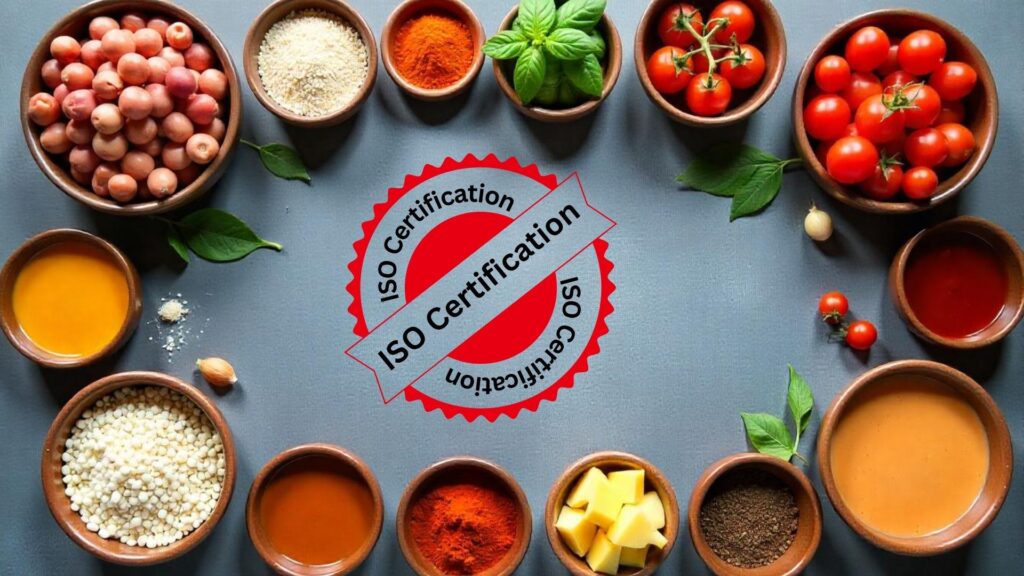Why ISO Certification Could Be Your Food Business’s Secret Sauce
Running a food and beverage business is like juggling flaming torches while riding a unicycle. You’re balancing customer expectations, safety standards, and that ever-looming bottom line. So, why add ISO certification Sri Lanka to the mix? Honestly, it’s not just another hoop to jump through—it’s a game-changer that can make your brand stand out like a perfectly plated dish. Let’s break down why ISO certification Sri Lanka matters for your food business and how it can spice up your operations.
What’s ISO Certification, Anyway?
You’ve probably heard the term ISO thrown around—maybe in a supplier meeting or on a competitor’s website. ISO stands for International Organization for Standardization, a global body that sets standards for everything from food safety to environmental management. For food businesses, certifications like ISO 22000 (food safety management) or ISO 9001 (quality management) are the big players.
Think of ISO certification Sri Lanka as a recipe: it’s a set of guidelines that, when followed, ensures your business delivers consistent quality and safety. It’s not about some stuffy auditor checking boxes; it’s about proving to your customers—and yourself—that you’re serious about what you do. Why does that matter? Because in today’s food industry, trust is the currency that keeps customers coming back.
The Trust Factor: Why Customers Care
Picture this: a family walks into your restaurant, scanning the menu. They’re not just choosing between burgers and salads—they’re deciding whether they trust you to keep them safe. Food scandals, from E. coli outbreaks to mislabeled allergens, have made consumers savvier than ever. A survey by Food Safety Magazine found that many diners check for certifications like ISO 22000 before eating out. That’s not a small number.
ISO certification Sri Lanka tells your customers you’ve got their back. It’s like hanging a diploma on your wall—it shows you’ve done the work to earn their trust. And let’s be real: in an era where one bad Yelp review can tank your reputation, that trust is worth its weight in gold. Plus, it’s not just about diners. Retailers, distributors, and even investors are more likely to partner with a certified business. It’s a signal that you’re not cutting corners.
A Recipe for Smoother Operations
Now, let’s talk about the behind-the-scenes magic. Getting ISO-certified isn’t just about slapping a logo on your packaging—it’s about streamlining your processes. When you implement ISO 22000, for example, you’re forced to map out every step of your food safety system. From sourcing ingredients to cleaning equipment, nothing gets overlooked.
I know what you’re thinking: “That sounds like a lot of paperwork.” And yeah, it can be—at first. But here’s the thing: once those systems are in place, your operations run like a well-oiled kitchen. Employees know exactly what to do, errors drop, and you spend less time putting out fires. A small bakery I worked with saw their waste cut significantly after adopting ISO 9001. Why? Because they caught inefficiencies they didn’t even know existed.
- Fewer recalls: Clear processes mean fewer mistakes that could lead to costly recalls.
- Happier staff: Standardized training reduces confusion and boosts confidence.
- Lower costs: Less waste and fewer errors mean more money in your pocket.
Okay, But What’s the Catch?
Let’s not sugarcoat it—getting ISO certification Sri Lanka isn’t a walk in the park. It takes time, money, and commitment. For a small café or food truck, that can feel like a stretch. But here’s where I push back a bit: think of it as an investment, not an expense. That same bakery? They recouped their certification costs through new contracts with local grocery chains. Plus, the process doesn’t have to be overwhelming. Break it down into steps—start with a gap analysis, train your team, and work with a consultant if you need to. It’s like prepping for a big dinner service: daunting at first, but manageable with a plan.
ISO 22000 vs. ISO 9001: Which One’s Right for You?
Choosing the right ISO standard can feel like picking the perfect wine pairing—there’s no one-size-fits-all. ISO 22000 is laser-focused on food safety, covering everything from farm to fork. It’s a must if you’re a manufacturer, processor, or restaurant dealing with complex supply chains. ISO 9001, on the other hand, is broader, focusing on overall quality management. It’s great for businesses that want to improve customer satisfaction and operational efficiency across the board.
Here’s a quick cheat sheet:
- ISO 22000: Ideal for food safety, mandatory for some international markets.
- ISO 9001: Perfect for boosting quality and consistency, especially for smaller businesses.
Not sure which one to pick? Many food businesses start with ISO 22000 and layer on ISO 9001 later. It’s like building a house—you start with the foundation before adding the fancy stuff.
The Global Edge: Standing Out in a Crowded Market
Let’s zoom out for a second. The food and beverage industry is more competitive than ever. With trends like plant-based diets and eco-conscious eating, customers have endless options. So, how do you stand out? ISO certification Sri Lanka gives you a leg up, especially if you’re eyeing international markets.
Take Europe, for example. Many EU buyers won’t even look at suppliers without ISO 22000. It’s not just a preference—it’s a requirement. Even closer to home, big players like Whole Foods or Costco prioritize certified suppliers. Certification opens doors that might otherwise stay closed. And in a world where “sustainable” and “safe” are buzzwords, it’s a marketing win, too. Slap that ISO logo on your website, and watch your brand’s credibility soar.
Getting Started: Your Next Steps
Feeling inspired but not sure where to begin? Don’t worry—you don’t have to tackle this alone. Here’s a simple roadmap to get you started:
- Do your homework: Research which ISO standard fits your business.
- Find a consultant: Firms like Bureau Veritas or SGS can guide you through the process.
- Train your team: Get everyone on board to ensure smooth implementation.
- Schedule an audit: Once you’re ready, an external auditor will check your systems.
And here’s a pro tip: start small. You don’t need to overhaul your entire operation overnight. Focus on one area—like supplier management or hygiene protocols—and build from there. It’s like perfecting a signature dish before rolling out a full menu.
The Bigger Picture: Why It’s Worth It
At its core, ISO certification is about more than just meeting standards. It’s about building a business you’re proud of—one that delivers safe, high-quality food every single day. It’s about earning the trust of your customers, your partners, and even your own team. And in a world where food businesses are under more scrutiny than ever, that’s no small feat.
So, what’s holding you back? Maybe it’s the cost, the time, or just the fear of change. But think about this: every successful food business started with a leap of faith. Whether it was opening that first café or launching a new product line, they took a risk—and it paid off. ISO certification could be your next big leap. And who knows? It might just be the secret sauce that takes your business to the next level.


